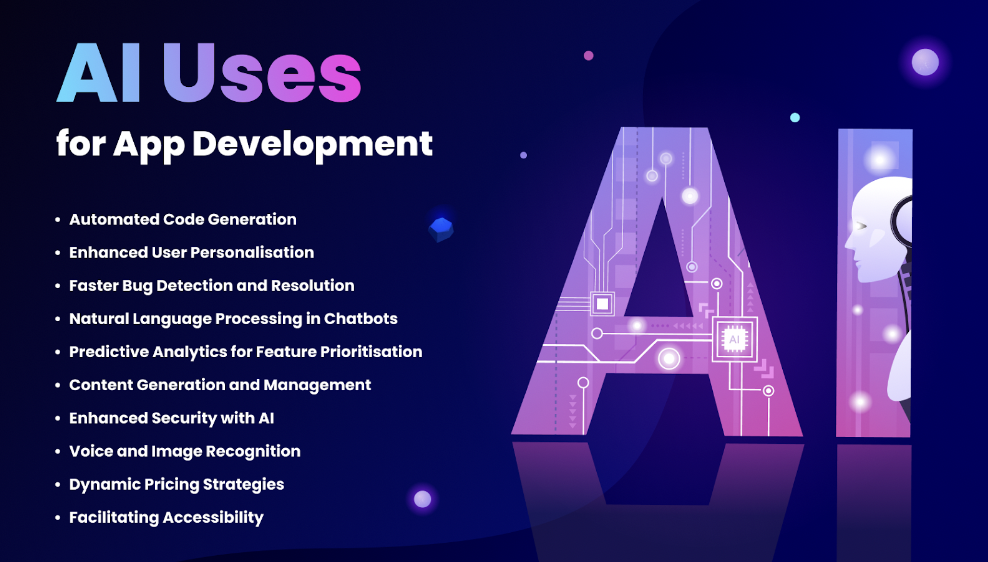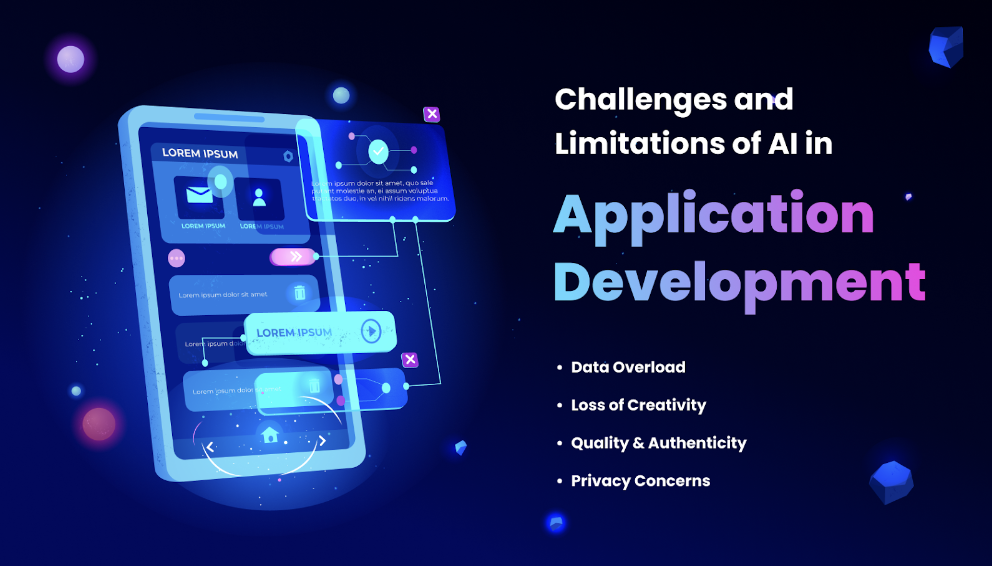How AI is Already Supporting Native App Development

How AI is Already Supporting Native App Development
AI is revolutionizing app development by streamlining processes, providing design suggestions, anticipating user preferences, and improving apps through data analytics Although AI plays an important role in app development, it emphasizes the importance of combining AI’s capabilities with human creativity for optimal results.
In the realm of technology, AI is reshaping the industry. The landscape of native app development (the cornerstone of user engagement) is no exception.
Not only does it offer a collection of tools and techniques that have the potential to reshape the landscape of software development, but it also brings about a synergy between human creativity and machine intelligence.
AI in app development is like having an extra pair of hands when you need them most.
Looking for the ideal team to support your native app work? Connect with best-in-class app development companies on The Manifest.
The Benefits and Advantages of Using AI
The AI-fueled transformation of native app development isn't about machines replacing human ingenuity.
Instead, it orchestrates AI's capabilities to enhance and streamline the creative process. These include:
- Enhanced Efficiency: Streamlined processes and automation.
- Improved User Experience: Personalisation and user-centric features.
- Data-Backed Insights: Informed decision-making.
- Scalability: Handling growing user bases and data volumes.
- Predictive Capabilities: Anticipating user needs and trends.
- Cost Reduction: Labour savings through automation and optimization.

The benefits are clear, but AI’s use in app development isn’t as it stands.
AI Uses for App Development
If AI has become the extra pair of hands that developers can rely on when they need it most, let's check some of the proven ways it is helping to develop applications:

Automated Code Generation
One of the most welcome AI-driven tools is the capability to generate code snippets based on natural language descriptions.
For instance, a developer can describe a feature they want in plain English, and AI can automatically generate the corresponding code, significantly speeding up the development process.
Enhanced User Personalisation
As seen in apps like Netflix and Spotify, AI-powered recommendation systems analyze user behavior and preferences to provide personalized content and suggestions.
These algorithms continuously learn and adapt, ensuring users have a tailored experience, leading to higher user satisfaction and retention.
Faster Bug Detection and Resolution
AI-based testing frameworks can autonomously explore applications, identifying bugs and performance issues more comprehensively and quickly than manual testing.
This benefit not only reduces development time but also enhances app quality.
Natural Language Processing in Chatbots
AI-driven chatbots can now understand and respond to natural language queries effectively.
For instance, customer support chatbots can provide human-like interactions, resolving issues and answering questions 24/7 without human intervention.
Predictive Analytics for Feature Prioritisation
AI algorithms analyze user data to predict which features will likely be most valuable or popular. This helps developers prioritize development efforts and allocate resources more efficiently.
Content Generation and Management
AI-powered content management systems can create, curate, and even translate content.
For example, news apps can use AI to generate news articles or summaries in multiple languages, reaching a wider audience.
Enhanced Security with AI
AI detects and prevents security breaches and cyberattacks. It can analyze network traffic in real-time, identify anomalies, and take immediate action to safeguard user data and app integrity.
Voice and Image Recognition
AI-driven voice and image recognition technologies have found their way into app development. Voice assistants like Siri and image-based search capabilities in shopping apps have become commonplace, enhancing user convenience.
Dynamic Pricing Strategies
E-commerce apps employ AI algorithms to optimize pricing dynamically based on factors like demand, competitor pricing, and historical sales data. This ensures that prices are competitive and attractive to users.
Facilitating Accessibility
AI-driven app features, such as text-to-speech and speech-to-text, have made digital content more accessible to individuals with disabilities, ensuring inclusivity in app design.
Challenges and Limitations of AI in App Development

Okay, let’s forget the good stuff and be less optimistic about using AI for app development. Let’s delve into the key hurdles faced:
- Data Overload: Excessive data can lead to analysis paralysis for decision-makers.
- Loss of Creativity: AI should complement human creativity, not replace it. Humans excel at understanding user emotions and thinking outside the box.
- Quality & Authenticity: Inaccurate data can result in flawed decisions, and content generation by AI raises ethical questions about originality and user data privacy.
- Privacy Concerns: Ethical data collection and compliance with privacy regulations are vital when using AI in app development, requiring a delicate balance between creativity and safeguarding user rights.
Humans and AI are the New Development Dream Team
So, the question remains: Can AI genuinely revolutionize native app development?
As we’ve seen today, the answer is nuanced.
AI is a formidable ally, a collaborator that amplifies our capabilities and accelerates the journey from concept to user-friendly app. When wielded skillfully, it's a tool that enhances efficiency, innovation, and user delight.
However, when it comes to the heart and soul of app development – creativity, user-centered thinking, and adaptability – that's where human magic truly shines. It's like blending both strengths for the ultimate development dream team!
That’s why app developers need to consider the limitations and downsides of using AI for app development.
While AI can handle repetitive tasks, analyze vast amounts of data, and offer data-driven insights, humans still bring their creativity, user-centered thinking, and adaptability.
Overall, the developer's role will likely evolve from traditional coding to orchestrating AI-driven insights, and that’s okay. Whatever will lead to the best user experience will be the path. If AI can assist on that path, who’s to say it's wrong?
More so, as we forge ahead, the promise of AI in app development beckons, awaiting those who dare to explore its transformative potential while safeguarding the essence of human ingenuity.
